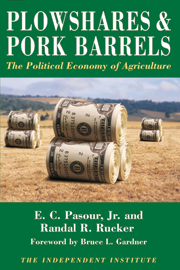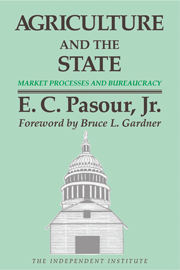Taxation is a red hot topic in Raleigh as Governor Hunt and the Legislature consider various measures to reduce taxes. However, there is one little-known but pernicious tax that warrants particular scrutiny -- the "soft drink" excise tax.
Most people in North Carolina are well aware of the sales tax on food but unaware that soft drinks are singled out to be subject to an additional excise tax. The tax, one cent per container of soft drink, is a hidden tax to consumers as distributors, wholesalers, and retailers are forced to remit the tax to the state bureaucracy. The soft drink excise tax burden is higher on smaller containers because the tax is one cent, regardless of container size -- whether a two-liter bottle or a 12 ounce can!
More absurd still is the fact that "soft drinks" are the only food products in North Carolina saddled with an excise tax. In reality, the "soft drink tax" is a misnomer because it is also levied, seemingly without rhyme or reason, on many competing products as well. For example, tomato juice and orange soft drinks are taxed, but orange juice, coffee, and tea are not. The ironic result is that a Coke or Pepsi in a vending machine is taxed while a can of tea in the same machine isn’t! Sparkling bottled water is taxed; bottled water that doesn’t sparkle is not. Fruit punches, Kool Aid, and Snapple Pink Lemonade are only a few of the numerous other drinks subject to the soft drink excise tax.
There is no public purpose served by promoting the use of coffee and tea and other untaxed beverages at the expense of products subject to the soft drink excise tax. Indeed, the soft drink tax, unlike so-called "sin taxes" on alcoholic beverages, is not meant to reduce the consumption of products covered by the tax. In short, the soft drink tax is highly arbitrary and discriminatory.
The soft drink excise tax also fails all so-called "public finance standards" of taxation. The tax violates the ability-to-pay principle, which holds that taxes should be levied according to the capacity of taxpayers to pay them. However, there is no evidence that businesses and consumers handling and using soft drinks and other products covered by the tax are in a stronger position to pay taxes, relative to other groups. Indeed, lower income families and young people, who are among the highest consumers of soft drinks, tend to have less ability to pay. Thus, the soft drink excise tax at the consumer level is regressive and punitive to those least advantaged -- the amount of tax paid relative to family income is higher for lower income groups.
The soft drink excise tax also falls short in terms of the "benefit principle" in taxation, which holds that tax receipts should be linked to the benefits that those paying the taxes receive from government. Although the tax is a significant burden, revenues from the tax are not used to provide special benefits to consumers or businesses affected by the tax.
Furthermore, the bureaucracy and red tape required in the tax’s administration creates an additional "social cost" because of the highly arbitrary method of selecting products covered by the "soft drink" excise tax. This administrative cost is augmented by problems created in "border" areas where businesses handling taxed products operate in both covered and uncovered areas, and consumers have the opportunity to shop in both areas.
The unpopularity of the North Carolina soft drink tax is shown by the fact that only five other states in the United States now impose a special excise tax on soft drinks. Moreover, three states (Ohio, Mississippi, and Louisiana) have repealed the tax within the last three years.
What would be the fiscal impact of repealing or phasing out the soft drink excise tax in North Carolina? The tax generates some $37 million in state tax revenues per year -- or less than one-half of one percent of state revenue. Thus, a repeal or phase out of the tax would have virtually no impact on state revenues.
In short, the soft drink excise tax is an absurd, wholly misguided and harmful interference in the marketplace for food products. It is the only case in which North Carolina consumers must pay an excise tax on food products in addition to state and local sales taxes. It is time to end the discrimination against producers and consumers of soft drinks, fruit punches, tomato juice and other food products hit by the soft drink excise tax.









